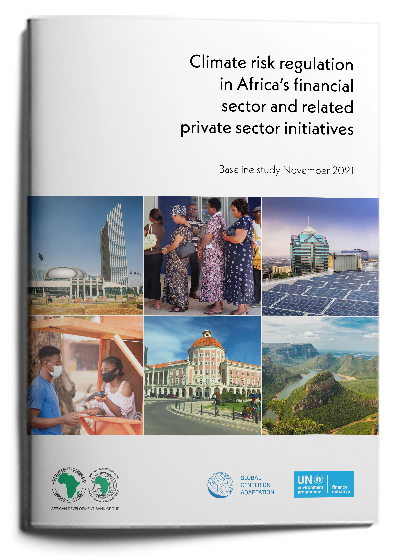Climate Risk regulation in Africa’s Financial Sector and Related Private Sector Initiatives

ABSTRACT
The threat posed to the global financial system by climate-related risks is now recognised on a wider scale. Extreme weather events could lead to damage of physical assets, including real estate, productive capital, and infrastructure, consequent property and casualty insurance losses, damage to balance sheets of households and firms, increases in defaults, and potential financial sector distress. A late or sudden transition to a low-carbon economy could result in an abrupt repricing of climate-related risks and stranded assets, which could negatively impact the balance sheets of financial institutions (FIs).
Globally, the financial sector’s consideration of climate change risks has gathered momentum in the past 10 years. This has manifested, for example, in the development of the Task Force on Climate-Related Financial Disclosures (TCFD) recommendations, the NGFS, and various initiatives under the United Nations Environment Programme Finance Initiative (UNEP FI), such as the Principles for Responsible Banking (PRB), Collective Commitment to Climate Action (CCCA), and the Net-Zero Alliances. While some countries and regions are actively driving their financial sectors’ approaches to climate risks through regulatory requirements, other jurisdictions are more influenced by private sector efforts.
This report seeks to assess the integration of climate-related risks in the prudential, financial, regulatory, and supervisory frameworks of a selection of African countries and identify potential levers to incentivise their internalisation. It does not explore broader green/sustainable finance-related initiatives, like bonds and principles.
The publication was commissioned by the AfDB/AFAC in partnership with the GCA and UNEP FI, with analytical support from McKinsey & Company.